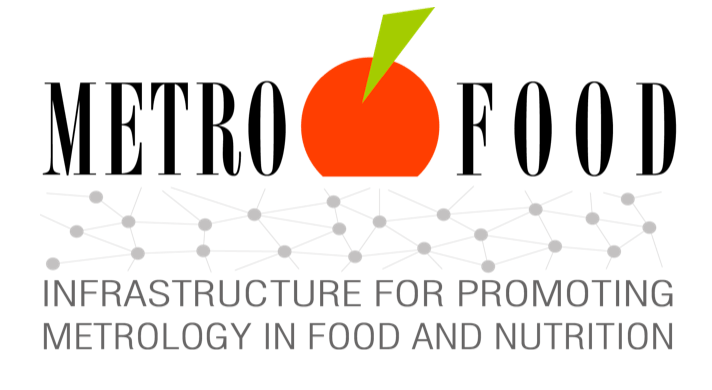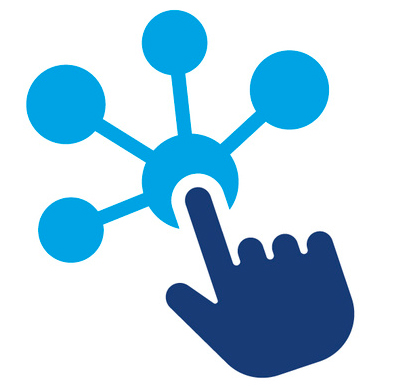Strengthening of the Italian Research Infrastructure for Metrology and Open Access Data in support to the Agrifood
Webinar METROFOOD-IT: New Techniques for Food Safety
With March, the cycle of webinars organized by METROFOOD-IT has entered its central phase. Between March 5th and 6th, four live online sessions were held, each characterized by strong participation from professionals in the world of Food Science. The first session, titled "Lab-on-Chip: A New Challenge for Food Safety," was conducted by Dr. Francesca Costantini from the Department of Environmental Biology at Sapienza University of Rome, and Professor Domenico Caputo from the Department of Information Engineering, Electronics, and Telecommunications at Sapienza University of Rome. During the webinar, the focus was on Lab-on-Chip technology, a miniaturized system capable of analyzing sample solutions. The advantages of miniaturization are numerous: small volumes (of samples and reagents), reduced pollution, faster reactions, and rapid thermal cycles. The potential applications of Lab-on-Chip technology include analyte detection in samples, genomics, proteomics, medical diagnostics, cell lysis, and food and agriculture. In particular, the Lab-on-Chip at La Sapienza has focused on developing an optoelectronic platform based on thin-film devices for thermal treatment and analyte detection, detecting mycotoxins (Platform 1) and bacteria and viruses (Platform 2), as well as nucleic acid amplification.
Nanocomposite Materials
An adjacent topic was addressed during the webinar "Nanocomposite Materials as Multisensory Platforms for Quality and Authenticity Control of Foods," led by Professor Marco Giannetto from the University of Parma. The session discussed the applications of sensors and biosensors for quality, authenticity, and safety control of raw materials and finished food products. Reference was made to "Sensors with Electrochemical Transduction," characterized by sustainable costs, sensor miniaturization, and increased compactness-portability of data acquisition instrumentation, with low-voltage power supply (including battery-powered). The discussion then delved into nano (bio) composite materials, which result from the combination of nanomaterials with other matrices such as polymers, electrochemically generated conducting polymers, and biological receptors. The advantages of nano bio composite materials range from high biocompatibility and bioaffinity of nanoparticles to the equally high specificity of bioreceptors (antibodies, nucleic acids, etc.). Nano composite materials form the basis of Biosensors (immunosensors, genosensors), with numerous application cases provided during the webinar. Towards the end, the discussion shifted to multisensory platforms consisting of "arrays" of "untargeted" sensors, characterized by the absence of a specific receptor/bioreceptor and the presence of electrochemical material sensitive to classes of analytes (selectivity vs. specificity). In this case, the objective is sample classification rather than "targeted" qualitative/quantitative analysis.
Portable Electronic Tongues and IoT
An adjacent topic was addressed during the webinar "Portable Electronic Tongues for Food Quality Assessment as IoT-based Smart Devices," also led by Professor Giannetto in collaboration with Professor Ilaria De Munari from the same university. The seminar initially referred to the definition of Electronic Tongues and Noses, which can be considered as multisensory platforms mimicking the sense organs of living organisms and can be seen as the evolution of sensory analyses conducted through panel tests with "human" tasters. Electronic tongues, in particular, are characterized by the prevalence of electrochemical sensors with potentiometric (ions) or voltammetric (all electroactive species) transduction and a wide range of sensitive materials for electrode functionalization. In any case, these are compact, cost-effective, and portable devices. Their application scope relates to Process Monitoring and Control (PAT) and on-site quality and conformity control (PON), with advantages summarized in speed, low cost, and ease of use. Professor De Munari then focused on IoT (Internet of Things), a technological paradigm where devices and subsystems communicate by interacting with each other and/or with a cloud. In practice, IoT consists of a set of technologies that can include sensor networks, augmented reality, logistics systems, and various types of infrastructure. In the food industry, IoT solutions can be useful for detecting food fraud, ensuring product quality, and monitoring different points of the production chain. In short, the development of portable devices for electronic tongues (but also electronic noses) is an open and continuously growing research field. The goal is to have devices that can be easily used in the field while maintaining high performance.
Photoacoustic Laser Spectroscopy
Another type of technology was addressed in the webinar "Photoacoustic Laser Spectroscopy: A New Technique for Food Safety," conducted by Luca Fiorani from ENEA. Initially, the operation of this application was described: the laser beam is modulated at an audio frequency and irradiates a sample inside a photoacoustic cell. The radiation is then absorbed by the sample, generating an increase in temperature and adiabatic expansion, resulting in the generation of pressure waves (sound). The sound is detected by a microphone coupled to a lock-in amplifier. The sample's absorption spectrum is obtained by changing the laser's wavelength. LPAS has been successfully applied for food safety analysis of products such as fruit juices, oil, oregano, milk, pollens, rice (flour and cereals), saffron, and seafood. The advantage is the ability to go into the field and measure the unknown sample in five minutes, immediately obtaining suspicions or authenticity results. For example, the technique can detect saffron adulteration at a level of a few percentage points in less than a minute.
METROFOOD-IT webinars continue until mid-April. The next session, "Blockchain for Agri-Food Traceability," led by Prof. Remo Pareschi and Dr. Sandro Pullo from the University of Molise, is scheduled for March 26th at 10:00 am.
Presentations available
Lab-on-Chip: A New Challenge for Food Safety
Dottoressa Francesca Costantini, Department of Environmental Biology, Sapienza University of Rome -
Professor Domenico Caputo, Department of Information Engineering, Electronics, and Telecommunications, Sapienza University of Rome -
Nanocomposite Materials as Multisensory Platforms for Quality and Authenticity Control of Foods
Professor Marco Giannetto University of Parma -
"Portable Electronic Tongues for Food Quality Assessment as IoT-based Smart Devices"
Prof. Marco Giannetto, Prof. Ilaria De Munari, University of Parma - ,
Photoacoustic Laser Spectroscopy: A New Technique for Food Safety
Dottor Luca Fiorani ENEA -






